Co-designing the Cranky Uncle Vaccine game in East Africa
Posted on 12 January 2024 by John Cook
This is a re-post of John Cook's article first published on his Cranky Uncle website. Even though it's not climate-related we are reposting it on Skeptical Science as it's an example of how the game evolved and how it gets put to good use in a different context.
We just had a paper published in the Journal of Health Communication documenting how we co-designed the East African version of the Cranky Uncle Vaccine game. This happened in a series of co-design workshops held in Uganda, Kenya & Rwanda.
The game is based on the original Cranky Uncle game that address general science misinformation (with a strong emphasis on climate misinformation), developed with Goodbeast and now available in 12 languages (thanks to many volunteers & the tireless co-ordination efforts of Baerbel Winkler).
The Cranky Uncle Vaccine game focuses on building player resilience against vaccine misinformation, developed in collaboration with UNICEF, the Sabin Vaccine Institute, Goodbeast, Skeptical Science, and Irimi. To adapt the game’s content to the subject of vaccine misinformation, first step was to identify the top ten fallacies in vaccine misinformation. I achieved this through a literature review of research into vaccine misinformation. The below figure shows the top ten vaccine fallacies: a subset of the FLICC taxonomy.
Once we started writing the game’s content – and following UNICEF’s suggestion that the game include facts about vaccines – we found it necessary to introduce a new character – a health worker who explains the facts about vaccines. This differentiated Cranky Uncle Vaccine from the original Cranky Uncle game which was took a “logic-based inoculation” approach. This involves explaining the misleading techniques and logical fallacies used in misinformation. But in the new game, we also incorporated fact-based inoculation – showing how misinformation is wrong through factual explanation. This combination of fact-based and logic-based inoculation will prove to be important.
The co-design workshops in Uganda, Kenya & Rwanda were designed to help refine the game design, making it more culturally relevant in the countries where we launched the game. One part of the workshop involved participants playing a prototype of the game, providing feedback on the gameplay and the content. If you look closely at the photo below, you’ll see how we mocked up a dummy version of an East African Cranky Uncle which had Uncle in a suit (this was based on some initial suggestions from colleagues based in Africa). But through the co-design process, we learnt that the suit made Cranky Uncle too reputable and credible looking! So the final design of Cranky Uncle lost the suit!
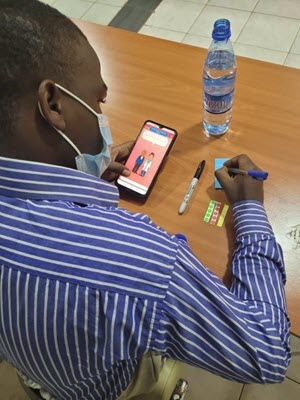
The co-design workshops also involved showing hand-drawn sketches of the various characters. Workshop participants “voted” on which characters they liked, or mixed and matched, combining part of one sketch with part of another (so the end result was what I like to call a Crankenstein) and provided many sticky notes of feedback. This was a very cool part of the workshop and I would have loved to have been in the room for this but while they toyed with the idea of my attending some of the workshops, ultimately they decided against it because they thought having the Cranky Uncle creator in the room might inhibit honest feedback. Fair call but I confess to experiencing FOMO.
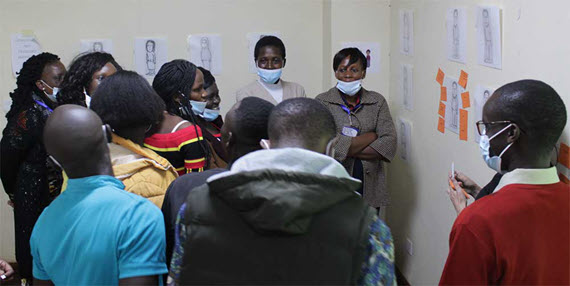
The iterative process of refining the cartoon characters was fascinating, learning insights we never would have learned otherwise and illustrating just how valuable the co-design process is. In the initial stage, I provided several sketches for each character with variations that were traditional or modern, with different clothes and hairstyles. In the case of the older characters, workshop participants opted for a more traditional look. We also learned that my initial sketch featured headwear tied according to West African style and we were provided with images showing how headwear was tied in East African countries.
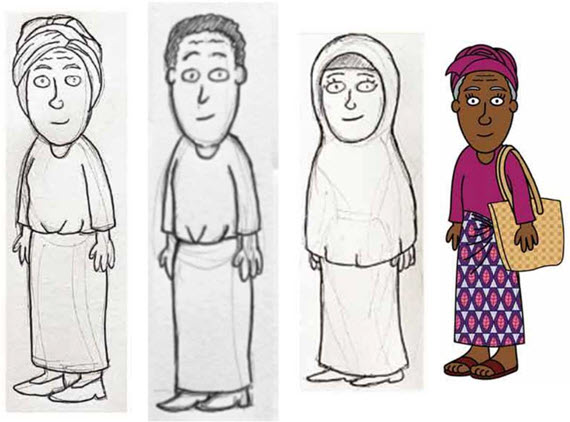
Conversely, the younger workshop participants opted for more modern versions for the younger characters. And we received feedback on the importance of accessorise! Handbags, jewellery, phone, earbuds, all important to include!
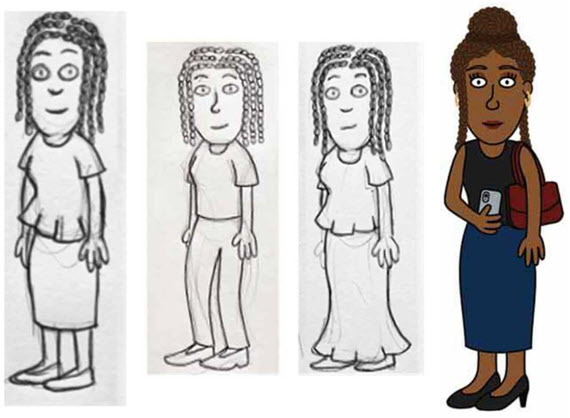
Much of the credit for the final awesome-looking characters must go to Wendy Cook who did all the digital character design once we started receiving feedback from the co-design workshops. The final characters shown below look amazing and the level of detail is testament to how productive the co-design workshops were. Stay tuned for future posts showing the outcome from co-design workshops ran in Ghana, Tanzania, and Pakistan!
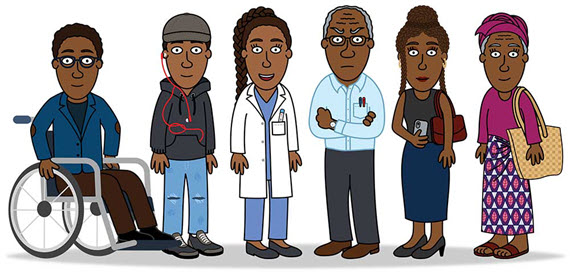
The co-design process was crucially important to refining the Cranky Uncle Vaccine game design and making it more culturally relevant in Uganda, Kenya & Rwanda. Next we ran pilot studies in Uganda & Kenya, testing the game’s effectiveness. But that’s a subject for an upcoming paper…
Refererence:
Hopkins, K. L., Lepage, C., Cook, W., Thomson, A., Abeyesekera, S., Knobler, S., ... & Cook, J. (2023). Co-Designing a Mobile-Based Game to Improve Misinformation Resistance and Vaccine Knowledge in Uganda, Kenya, and Rwanda. Journal of Health Communication, 28(sup2), 49-60.
Additional reading:
Article by Graham Readfearn in The Guardian, published on Jan 7, 2024: Climate and vaccine misinformation seemed worlds apart – but it turned out the Cranky Uncle was a universal figure































 Arguments
Arguments





















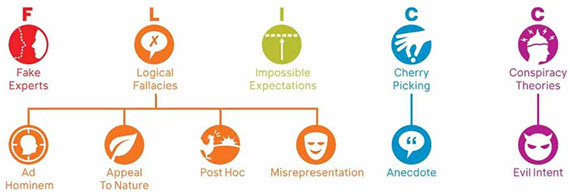
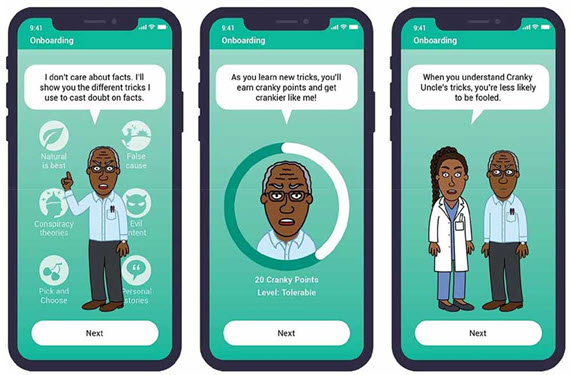









Comments